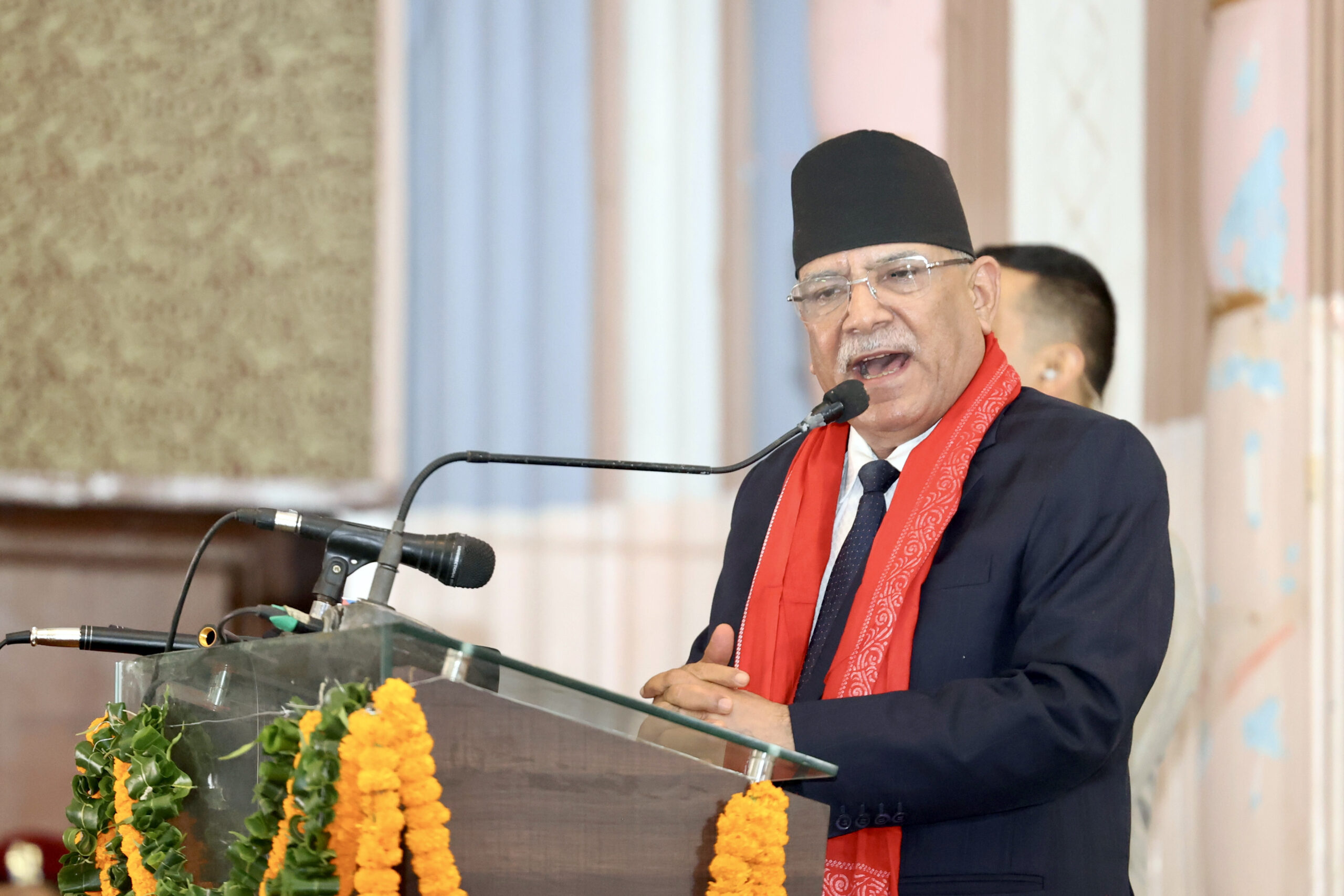0%

Chairman of Maoist Center, Pushpa Kamal Dahal Prachanda/File Photo
KATHMANDU: Chairman of the CPN Maoist Center, Pushpa Kamal Dahal Prachanda, has conducted an analysis that highlights the weakening of organizational activities within the party due to leaders’ willingness to prioritize personal gain, status, and financial incentives.
In a political and organizational report endorsed during the fourth full meeting of the Central Committee in July end, Dahal has criticized the deficient organizational efforts of party leaders.
Drawing from reports furnished by provincial committees and departments, Chairman Dahal pointed out issues in the party’s internal structure, including a prevalence of self-centered individualistic tendencies, factionalism, an aversion to devising collective plans following committee meetings, neglect of fieldwork and engagement with the populace, and a penchant for central power dynamics such as Singha Durbar, Baluwatar, and provincial capitals.
The critique within the committee unveiled a series of shortcomings, which encompassed a lack of introspection, an inclination to voice grievances externally rather than engage in self-criticism, and insufficient involvement in productive endeavors.
Likewise, he has pointed inadequate commitment, adoption of an economically opaque lifestyle, departure from working class support in favor of specific ethnic groups, and an inclination to prioritize personal gain, status, and money.
Dahal’s analysis also identified an upswing in tendencies that disregard party discipline, flout the law, and evade participation in discussions regarding ideological and political matters related to Maoism.
Despite these negative trends infiltrating the Maoist ranks, he has maintained that the party retains a pivotal ideological and political role within the country’s landscape.
The report has also underscored the need to propel the party organization forward, emphasizing, “To confront the novel crises stemming from the current situation, a communist party’s paramount task is to uphold ideological-political clarity.”
To accomplish this, he has advocated for comprehensive training, debates, discussions, internal publications, and widespread propaganda that span across the party hierarchy, mass organizations, fronts, departments, commissions, and, to the best extent possible, the general populace, all based on the Eighth National Congress document.
He has further analyzed that it is crucial to offer education and publicize the historic significance of transitioning from feudal monarchy to a federal democratic republic, extending this knowledge to all levels of the party and the public.
Maoist Chairman Dahal has also advocated continuous discourse between central party officials and ordinary members on the party’s trajectory, strategy execution, and ongoing development, in addition to mandatory participation in ideological endeavors.
The report has emphasized the importance of prioritizing ideas and actions over numerical strength and positions while fostering party unity.
It has underscoredthe need for prudent organizational management during the integration of new members to maintain equilibrium.
According to the report, the current juncture requires a novel political impetus to spearhead the groundwork for socialism.
Dahal, in his report, has accentuated the party’s role in unifying and fortifying the broader left-wing spectrum through a novel ideological and political amalgamation.